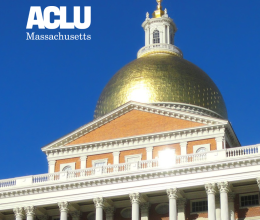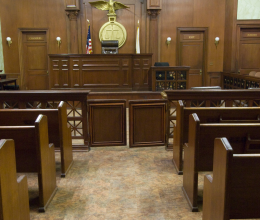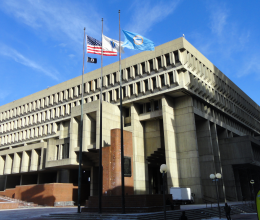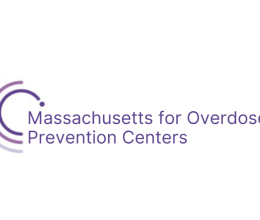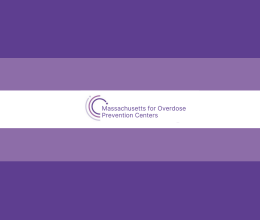
Public health experts and advocates present evidence-based solutions to intersecting crises
A new coalition of public health, addiction, housing, and civil liberties experts today called on Boston Mayor-Elect Michelle Wu to take a health-centered approach to the intersecting crises people are experiencing in the area of Melnea Cass Boulevard and Massachusetts Avenue.
Public Health & Human Rights for Mass and Cass Coalition has released a six-point plan for city and state officials to meet basic needs, provide housing, and promote public health for the people living unsheltered in the area of “Mass. and Cass.” The policy suggestions for city and state officials include:
- Protect Civil Rights and Human Dignity in Encampments and Treatment Settings, including by recognizing that requiring tent removal of the area will cause displacement from services, belongings, peers, medical providers, temporary shelters, and more. The City should meet basic needs for people living in encampments until people have access to housing.
- Conduct an Assessment of Needs of and Solutions for Unhoused People, including by organizing a process to provide each unhoused person an opportunity to tell policymakers what they need, the obstacles they face, and what would help remove those obstacles. This should occur without any law enforcement involvement.
- Eliminate Systemic Barriers to Housing and Provide Dignified Non-Congregate Shelter, including by focusing on housing first. In the short-term, officials should develop plans to expand emergency non-congregate shelter options, including using hotels and motels to create more options that offer privacy and autonomy. Officials should also reduce systemic barriers to existing shelter use, including by allowing people to possess harm reduction supplies and allowing couples to utilize shelter together. In the long-term, officials must build more affordable housing, including through the hundreds of millions of unspent American Rescue Plan Act funds.
- Prevent Overdose Death and HIV Transmission and Expand Harm Reduction to Keep People Alive and Safe, including by fast-tracking legislation to pilot safe consumption sites at the state level (H.2088/S.1272) and implementing them throughout Massachusetts, to be overseen by public health organizations.
- Expand Effective, Low Threshold Treatment through Immediate, Sustained Investment, including by increasing capacity throughout the state in low threshold care like same day initiation of medication for opioid use disorder or other pharmacotherapy, outreach, psychosocial, and peer support services.
- Decriminalize Drug Possession and End the Racist Drug War, including by fast-tracking pending bills to decriminalize simple possession (H.2119/S.1277). Substance use is a public health issue and should not be criminalized.
“Public health crises require public health solutions,” write the coalition. “We support a plan that treats people with dignity, that meets people’s stated needs in the short- and long-term, and that relies on evidence-based practices of low threshold housing, voluntary treatment, and harm reduction, not involuntary commitment and criminalization which risk even more death.”
Within the six policy areas, the coalition proposes three immediate action steps: 1) Establish non-congregate shelter and low threshold transitional housing similar to what was done during the COVID pandemic using FEMA funds; 2) Rapidly increase targeted voluntary treatment offerings; and 3) Stop the sweeps and meet basic sanitation needs while developing immediate non-congregate shelter options.
The full plan is here. It builds on recent calls from medical providers and advocates to employ bold and effective solutions to the overlapping crises at “Mass. and Cass.”
The plan was developed by a coalition including: Massachusetts Society of Addiction Medicine; Boston Health Care for the Homeless Program; BMC Grayken Center for Addiction Medicine; FXB Center for Health and Human Rights at Harvard; Health in Justice Action Lab at Northeastern University; Judy Bigby, MD; Alice Bukhman, MD, MPH; ACLU of Massachusetts; Charles Hamilton Houston Institute for Race and Justice; Material Aid and Advocacy Program; and Prisoners’ Legal Services of Massachusetts.
